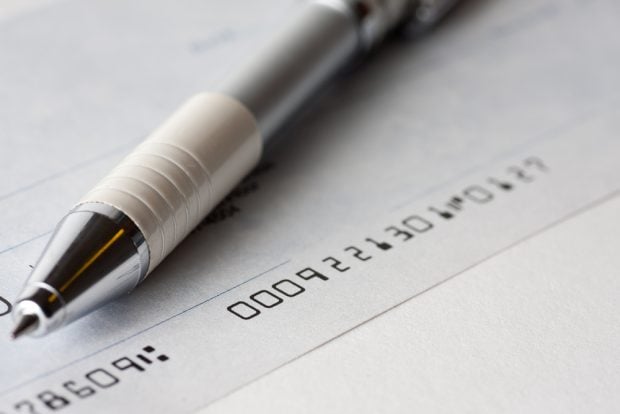 Check fraud remains a big problem for CUs. (Source: Shutterstock)
Check fraud remains a big problem for CUs. (Source: Shutterstock)
A nationwide surge of check fraud schemes targeting U.S. Mail prompted the Financial Crimes Enforcement Network (FinCEN) to issue a new alert Monday to credit unions and banks on how to detect, prevent and report suspicious activity connected to mail theft-related check fraud.
Bank Secrecy Act reporting for check fraud has increased significantly in the last three years, according to FinCEN.
Recommended For You
In 2021, credit unions and banks filed more than 350,000 suspicious activity reports, or SARs, to FinCEN to report potential check fraud, a 23% increase over the number of check fraud-related SARs filed in 2020. This upward trend continued into 2022, when the number of SARs related to check fraud reached more than 680,000, nearly double the previous year's number of filings.
Since the COVID-19 pandemic began, criminals have been increasingly targeting U.S. Mail and mail carriers to commit check fraud. Typically, criminals steal personal checks, business checks, tax refund checks and checks related to government assistance programs, such as Social Security payments and unemployment benefits, according to FinCEN. Following the initial theft and fraudulent negotiation of the stolen checks, criminals may continue to exploit their victims by using the personally identifiable information found in the stolen mail for future fraud schemes, such as credit card fraud or credit account fraud.
FinCEN, in coordination with the United States Postal Inspection Service (USPIS), dentified red flags to help financial institutions detect, prevent and report suspicious activity connected to mail theft-related check fraud, many of which overlap with red flags for check fraud in general.
The red flags include:
- Non-characteristic large withdrawals on a member's account via check to a new payee;
- Members complaining of a check or checks stolen from the mail that are deposited into an unknown account;
- Members complaining that a check they mailed was never received by the intended recipient;
- Checks used to withdraw funds from members' accounts appearing to be of a noticeably different check stock than check stock used by the issuing bank and check stock used for known, legitimate transactions;
- Members with no history of check deposits experiencing new check deposits, withdrawals or transfer of funds;
- Non-characteristic, sudden, abnormal deposit of checks, often electronically, followed by rapid withdrawal or transfer of funds;
- Examination of suspect checks revealing faded handwriting underneath darker handwriting, giving the appearance that the original handwriting has been overwritten;
- Suspect accounts that may have indicators of other suspicious activity, such as pandemic-related fraud;
- New members opening accounts that are seemingly used only for the deposit of checks followed by frequent withdrawals and transfer of funds; and
- A non-member attempting to cash a large check or multiple large checks in person and, when questioned, providing an explanation that is suspicious or potentially indicative of money mule activity.
In addition to filing a SAR, credit unions should refer their members who may be victims of mail theft-related check fraud to file a report with USPIS at 1-877-876-2455 or uspis.gov.
© Touchpoint Markets, All Rights Reserved. Request academic re-use from www.copyright.com. All other uses, submit a request to [email protected]. For more inforrmation visit Asset & Logo Licensing.







